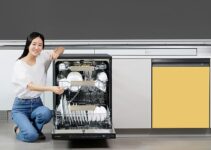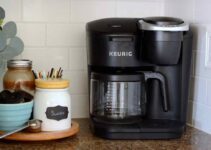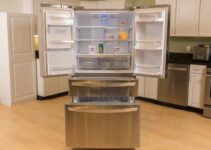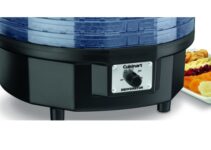As one of the top-rated dishwasher brands on the market, Bosch dishwashers are known for their reliability and efficiency. However, even the best appliances can experience problems from time to time. Here are some common issues you may encounter with your Bosch dishwasher and some troubleshooting steps you can take to address them.
Bosch Dishwasher Troubleshooting Guide
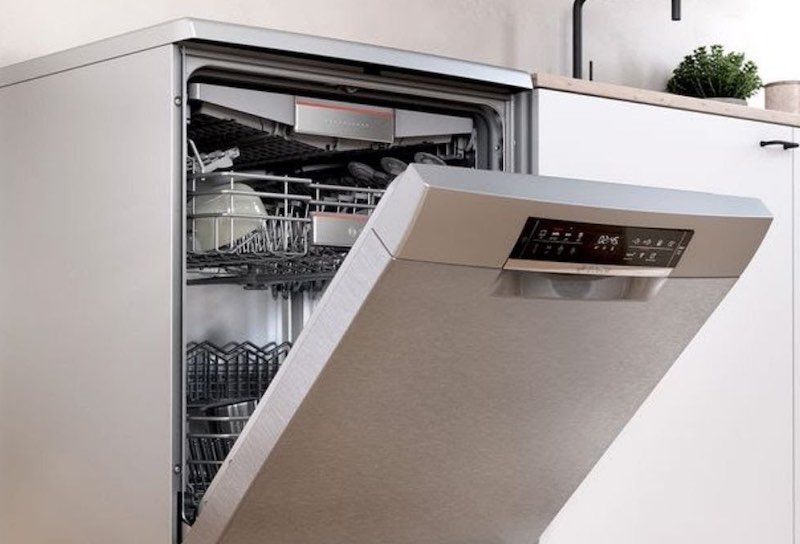
Bosch Dishwasher Not Draining
- Check the drain hose: Confirm that the drain hose is not kinked or clogged. If it is, straighten it out or clear the clog.
- Check the air gap: If your dishwasher has an air gap, make sure it is not clogged. Clear any debris or buildup that may be blocking it.
- Check the garbage disposal: If your dishwasher drains into a garbage disposal, make sure the disposal is not clogged. Run the disposal to clear any blockages.
- Check the drain pump: If none of the above solutions work, it may be a problem with the drain pump. The pump may be clogged or damaged, and may need to be replaced.
Bosch Dishwasher Not Draining at End of Cycle
- Check the filter: Make sure the filter is clean and not clogged. A dirty or clogged filter can prevent proper drainage.
- Check the drain hose: Ensure that the drain hose is not kinked or clogged. A kinked or clogged drain hose can prevent the water from draining properly.
- Check the air gap: Make sure that the air gap is not clogged with debris. If it is, clean it out.
- Check the drain pump: The drain pump may be clogged or faulty. Remove any debris from the drain pump and check it for signs of damage. If it’s damaged, replace it.
Bosch Dishwasher Not Starting
- Check the power supply: Ensure that the dishwasher is plugged in and the circuit breaker is not tripped.
- Check the door latch: Make sure the door is properly closed and latched. If it is not, the dishwasher will not start.
- Check the control panel: If the control panel is not responding, it may be a problem with the control board or keypad. Try resetting the dishwasher by unplugging it for a few minutes and then plugging it back in.
Bosch Dishwasher Not Drying
- Check the rinse aid dispenser: Make sure the rinse aid dispenser is full. Rinse aid helps dishes dry more quickly and evenly.
- Check the heating element: The heating element may be damaged or malfunctioning, preventing proper drying. Check the element for damage and replace if necessary.
- Check the settings: Make sure the dishwasher is set to the correct drying cycle. Some cycles may not include a drying cycle.
Bosch Dishwasher Not Filling with Water
- Check the water supply: Ensure that the water supply to the dishwasher is turned on and not blocked.
- Check the water inlet valve: The water inlet valve may be clogged or malfunctioning, preventing water from entering the dishwasher. Check the valve and replace if necessary.
- Check the float switch: The float switch may be stuck in the up position, preventing water from entering. You need to check and confirm it is not in a stuck position.
Bosch Dishwasher Not Cleaning
- Check the Spray Arm: Check and confirm that the spray arm is not blocked by any food debris or other objects. Remove the spray arm and clean it thoroughly with a brush to ensure that water can flow through it easily.
- Check the Filters: Dishwashers have filters that can become clogged with food debris and other particles over time. Remove the filters and clean them thoroughly to ensure that water can flow through them freely.
- Check the Detergent: Make sure that you are using the correct type and amount of detergent. Using too much detergent can cause a buildup of suds that can prevent your dishwasher from cleaning properly.
- Check the Water Temperature: Your Bosch dishwasher needs hot water to clean effectively. Make sure that your water heater is set to a temperature of at least 120 degrees Fahrenheit.
Bosch Dishwasher Not Heating Water
One of the most important functions of a dishwasher is to heat the water to the appropriate temperature to effectively clean and sanitize your dishes. If your Bosch dishwasher isn’t heating the water, it may be due to a few different reasons:
Causes
- Broken Heating Element: The function of the heating element is to heat the water inside the dishwasher. If it’s broken, the dishwasher won’t be able to heat the water.
- Faulty Thermostat: The thermostat is what regulates the temperature of the water in the dishwasher. If it’s not working properly, the dishwasher won’t heat the water to the right temperature.
Fixes
- Check the Heating Element: First, you should check the heating element to see if it’s working. You can do this by running a diagnostic test or checking the continuity of the element with a multimeter. If the heating element is broken, you’ll need to replace it.
- Test the Thermostat: You can test the thermostat with a multimeter to see if it’s working properly. If it’s not, you’ll need to replace it.
- Check the Water Temperature: Make sure the water going into the dishwasher is hot enough. The ideal temperature is between 120-140°F (49-60°C). If the water isn’t hot enough, you may need to adjust the temperature on your water heater.
Bosch Dishwasher Not Drying Dishes
Causes
- Overloading the Dishwasher: Overloading the dishwasher can prevent proper air flow and hinder the drying process.
- Dirty Filters: Dirty filters can prevent air from circulating properly and can cause moisture to build up in the dishwasher.
- Faulty Heating Element: If the heating element is not functioning correctly, it can prevent the dishwasher from properly drying the dishes.
Fixes
- Adjust the Load: Try reducing the amount of dishes you’re putting in the dishwasher to see if it helps with the drying process.
- Clean the Filters: Check the dishwasher’s filters and clean them if they’re dirty. This will ensure proper airflow and help the dishwasher dry the dishes more effectively.
- Check the Heating Element: Make sure the heating element is working correctly. You can do this by running a diagnostic test
Bosch Dishwasher Buttons Not Responding
One common reason for buttons not responding is a malfunctioning control panel. However, before assuming that’s the issue, try the following troubleshooting steps:
Fixes
- Check the power supply: Ensure that the dishwasher is properly plugged in and that the circuit breaker hasn’t tripped. If you’re unsure, try plugging in another appliance to see if it works.
- Clean the buttons: Dirt and grime buildup can sometimes cause buttons to stop working properly. Try cleaning them with a damp cloth and see if that solves the problem.
- Restart the dishwasher: Sometimes, simply restarting the dishwasher can fix the issue. Turn it off for a few minutes, then turn it back on again.
- Call for repair: If none of these steps work, it’s possible that the control panel is malfunctioning and will need to be repaired or replaced.
Bosch Dishwasher Stopped Mid-cycle
The most common reason for a dishwasher to stop mid-cycle is a malfunctioning door switch. The door switch is designed to prevent the dishwasher from running when the door is open, so if it’s not working properly, it could cause the dishwasher to stop running.
Fixes
- Check the door: Ensure that the door is properly closed and latched. If it’s not, the dishwasher won’t run.
- Restart the dishwasher: Like with the button issue, sometimes simply restarting the dishwasher can fix the problem. Turn it off for a few minutes, then turn it back on again.
- Check the water supply: Make sure that the water supply to the dishwasher is turned on and that there are no kinks in the water supply line.
- Check the filters: Clogged filters can cause the dishwasher to stop running. Check them and clean them if necessary.
- Call for repair: If none of these steps work, it could be that there’s a more serious issue with the dishwasher that will require a repair technician to fix.
Bosch Dishwasher Error Codes & Fixes
If your Bosch dishwasher is displaying an error code, don’t worry – it’s not necessarily a sign of a serious problem. Here are some common error codes and what you can do to fix them.
- E14: This error code indicates a problem with the dishwasher’s flow sensor. Visually inspec the flow sensor and its wiring for any visible damage or signs of wear. If the flow sensor is fine, it’s possible that there’s a problem with the electronic control board, which will need to be replaced.
- E15: This error code indicates a leak in the dishwasher. Look into the dishwasher for any visible leaks, and ensure that the dishwasher is level. If there are no visible leaks, it’s possible that the leak detector is malfunctioning and will need to be replaced.
- E24: This error code indicates a problem with the drain. Check the drain line for kinks or blockages. If the drain line is clear, This could indicate a problem with the drain pump or drain hose, which will need to be replaced.
- E25: This error code indicates a problem with the drain filter. Inspect the drain filter and clean it if necessary. If the filter is clean and the error code persists, it is possible that there is a problem with the drain pump or the impeller, which may need to be replaced.
